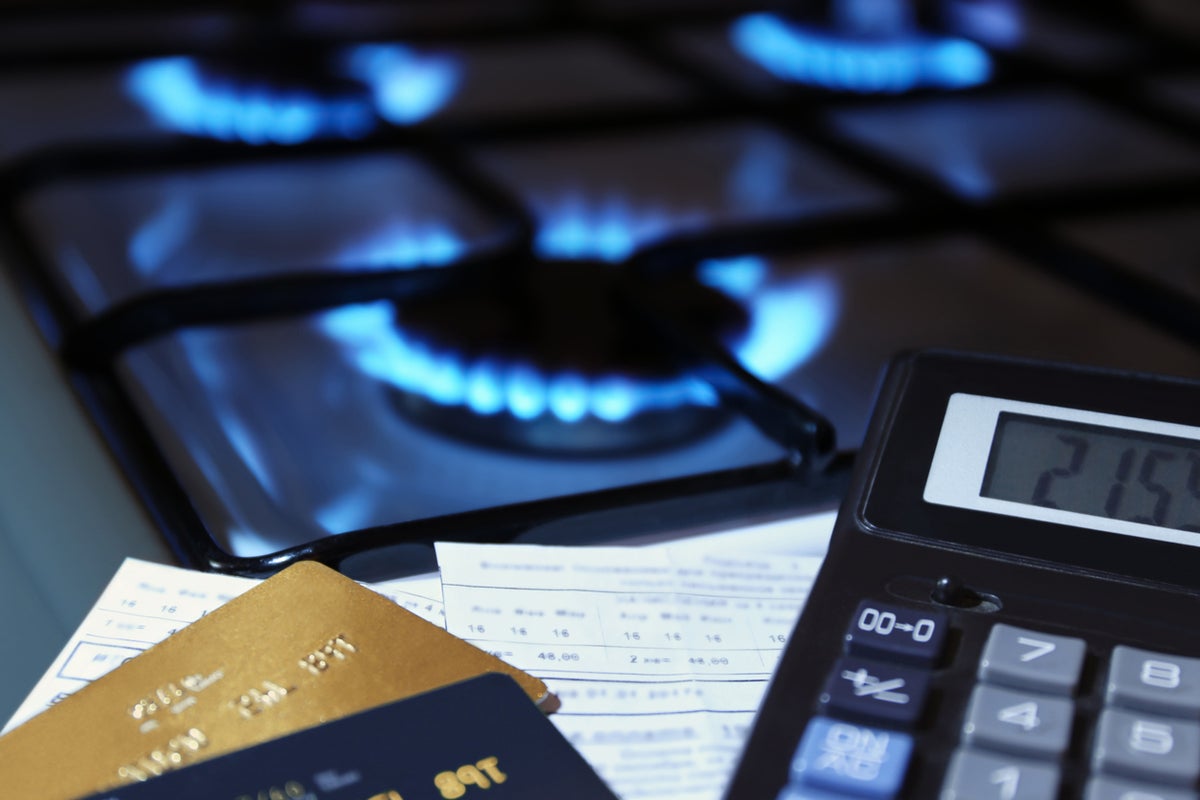
Energy bills may finally be dropping but bosses at the UK’s largest energy suppliers were paid enough last year to power 23,000 homes for an entire year, it can be revealed.
Executives, board members and other high-level employees of the ‘Big Six’ gas and electric companies received £58m in salaries, bonuses and fees, analysis of their 2022 accounts shows. The average annual household energy bill up until the end of June was £2,500.
The disclosure comes as energy firms have raked in record profits – fuelled by Russian president Vladimir Putin’s illegal invasion of Ukraine on 24 February last year – while households still face huge bills.
Campaigners said that energy companies should be using their bumper profits to help their customers to improve the energy efficiency of their homes.
Gas and electricity costs have started to come down with decreasing wholesale prices but household bills remain well above average and are likely to remain so for years to come, economists have warned.
The typical household energy bill for a home in the UK was £2,500 until the end of last month, due to the government’s energy price guarantee that caps the unit cost of gas and electricity. Prices are set to fall from July as the energy price cap is lowered to £2,074 but for many bills will remain unaffordably high.
The government has introduced several other support schemes to help households and businesses cover the cost of powering their homes – funded by billions of pounds of extra borrowing.
But much of that help has ended and groups representing businesses previously warned that some companies could have to downsize or fold when the changes begin to bite.
Centrica, which owns British Gas, paid 11 people £6.5m last year. CEO Chris O’Shea personally raked in £4.5m - just under £700,000 of which came in the form of a bonus payment. Kate Ringrose, Centrica’s outgoing CFO, was paid just over £1m in salary and bonus.
Just two of the Big Six firms supplying UK homes with gas and electricity are owned by parent companies that are based in Britain.
E.ON, the German-headquartered firm, which has 5.5 million UK customers and took over Npower in 2019, paid 25 people more than £18m.
Chairman and CEO Leonhard Birnbaum took home €5.4m (£4.7m), more than £2m of which was a bonus. Chief operating officers Thomas König and Patrick Lammers were paid a total of €3.3mn (£2.89mn) and €2.4mn (£2.17m) respectively.
Households across the country continue to face sky-high energy bills— (Getty Images/iStockphoto)
EDF (Électricité de France) is a French state-controlled energy generation and supply company that had nearly 700,000 UK customers in 2018.
Its annual report for 2021-22 said the group’s “key management and governance personnel” were paid a total of €12.5 million (£10.9m) in salaries and bonuses. It did not give a full breakdown of how this amount was distributed.
SSE, which has its headquarters in Perth, Scotland, paid 14 people £10.1m last year. CEO Alistair Phillips-Davies received £4.5m in salary and bonus while finance director Gregor Alexander and chief commercial officer Martin Pibworth were paid £3.1m and £2.5m respectively. SSE sold its domestic energy business to Ovo in January 2022.
Iberdrola, the Spanish utilities company that owns Scottish power, paid just 16 people £11m last year. Executive chairman José Ignacio Sánchez Galán was paid €6.3m (£5.5m) while CEO Armando Martinez received €250,000 (£220,000). Four other board members received around €500,000 (£441,000).
In 2018 Scottish Power said it became the first UK energy company to generate all of its electricity from renewable sources.
Centrica boss Chris O’Shea, pictured last year with then-prime minister Liz Truss, was handed a £4.5m pay package after the business saw its profits soar— (PA Wire)
Jamie Peters, a campaigner at Friends of the Earth, said: “These figures illustrate the stark injustice that while millions of people struggle to afford to heat and power their homes, the bosses of the companies cashing in on the energy crisis are taking home huge pay packets and eyewatering bonuses.
“Raking in mega-profits through continued fossil fuel exploitation is something that should have been consigned to the history books decades ago.
“Private companies have a responsibility to align their business models with global climate targets, as well as to their customers who deserve clean and affordable energy. This starts with proper investment in cheap, homegrown renewable power and improving the energy efficiency of our heat-leaking homes.”
A spokesperson for SSE said: “We know it is vitally important to protect households from future energy price shocks and that’s why through our Net Zero Acceleration Programme we are investing £7m a day in critical low-carbon infrastructure that will help the UK achieve energy independence from those seeking to weaponise energy, and keep prices down in the long term.
“In doing so, we are currently building more offshore wind than anyone on the planet, creating thousands of green jobs and pioneering new energy technologies.
“ With this in mind, SSE’s executive remuneration policy – updated regularly and approved by shareholders at our AGM in July – aims to set a competitive, but not excessive, total remuneration package against appropriate benchmarks in order to encourage strong performance against delivery of this net zero-focused strategy.”
Centrica, E.ON, EDF and Iberdrola were contacted for comment.
Chancellor of the Exchequer Jeremy Hunt delivering his Budget to the House of Commons— (PA Wire)
Jeremy Hunt, the chancellor, in his Budget earlier this year updated plans for Great British Nuclear, which he said would provide “opportunities across the nuclear supply chain to help provide up to one-quarter of our electricity by 2050”.
Great British Nuclear is being created as the agency to establish “a secure energy future” in Britain following Russia’s invasion of Ukraine and the subsequent effects on energy prices globally.
Critics called on the government to act on the plan – announced over a year ago – more quickly.
At the end of March the government updated its Net Zero Strategy, which also included measures to improve energy security and bring down household bills.
The government previously said its plans would “scale up affordable, clean, homegrown power and build thriving green industries in Britain”.







